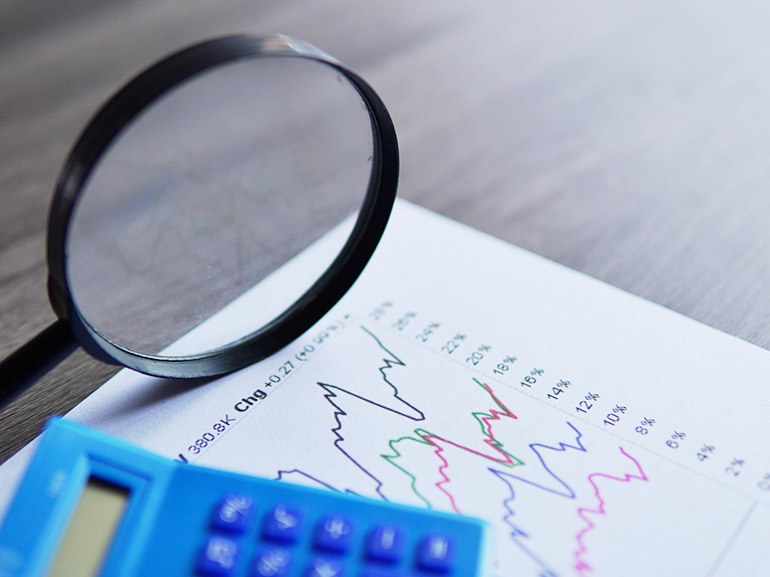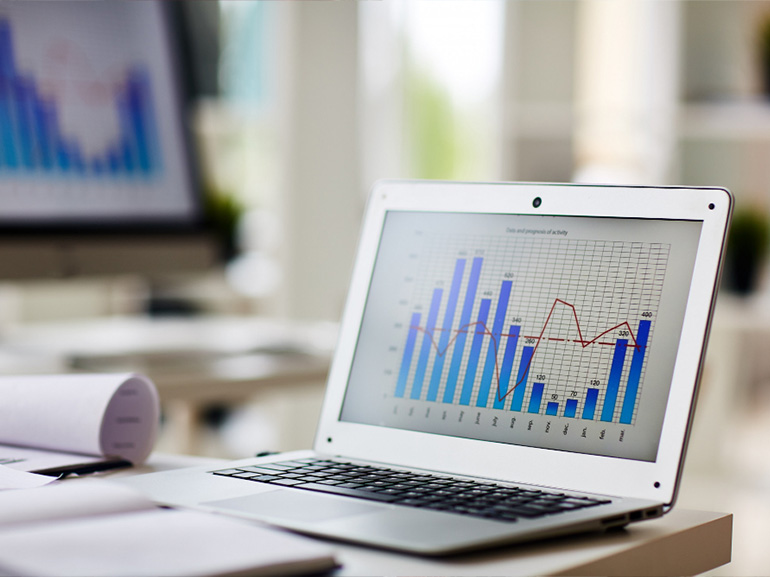How Do Black Friday & Cyber Monday Affect the Stock Market?
For many shopaholics and bargain hunters, Black Friday and Cyber Monday are long-awaited events and days.
Popular brands from various sectors bombard their clients with attractive deals, whether online or offline, and the internet is flooded with offers during these two holidays.
But these days, they far surpass the realm of shopping and could also interest traders and investors due to their effects on the stock market.
Here’s what you need to know about Black Friday and why it should interest traders and investors as well as consumers:

TL;DR
Black Friday is the Friday after Thanksgiving. It is the busiest shopping day of the year and signals the start of the holiday shopping season.
Cyber Monday is the Monday after Black Friday, focusing on online deals.
Strong Black Friday sales can boost market sentiment, especially in retail stocks. That is why Friday is seen as a key economic indicator.
US markets close early on Black Friday (1 p.m. ET). Retail stocks often outperform the broader market during this time.
Historically, retail stocks had higher returns (5%) during Black Friday compared to the S&P 500 (3%) from 2007-2017.
What Is Black Friday?
Known as one of the most anticipated and celebrated retail holidays, Black Friday refers to the Friday following Thanksgiving in the USA.
Black Friday is considered the busiest shopping day in the year and usually takes place on the fourth Friday of November unless the 1st of November falls on a Friday.
Moreover, it is worth noting that this day has grown to become a good indicator of the Christmas shopping season, and many retailers carry on with these holiday sales till Monday, which is famously known as Cyber Monday for online retailers.
Walmart (WMT), for example, usually begins its Cyber Monday sales as early as 12:01 a.m. on Thanksgiving day.
What Is Thanksgiving and How Does It Affect Trading Hours?
Thanksgiving is a US federal holiday that falls on the last Thursday of November and celebrates the year’s harvests and blessings as those celebrating it “give thanks” to the year’s harvest.
Besides being a federal holiday, it is important to note that Thanksgiving is a stock market holiday which means that US equity markets are closed for trading that day.
However, even though markets close on Thanksgiving, this holiday has become crucial for businesses, especially in the food industry.
What Time Does the Stock Market Close On Black Friday?
Usually, US markets will close earlier than usual, and trading will stop at 1 p.m. ET. (Source: NYSE)
Origins: The History of Black Friday
Historically, the origin of Black Friday was not as gleeful as it is today. Many track the origin of Black Friday to the US financial crisis in 1869, whereby prices of gold plummeted.
Thereafter, the same phrase was used to refer to retail stores’ poor sales, which were driven by their underperformance as they were “in the red.”
These fortunes were turned when, on the day after Thanksgiving, retailers were back "in the black" due to shoppers spending their money at lower prices, which is believed to have given the modern Black Friday its name. (Source: CountryLiving)
The Monday Equivalent of Black Friday: What Is Cyber Monday?
The Monday following Thanksgiving and Black Friday is called “Cyber Monday." It is also an important retail holiday (held online) during which consumers can enjoy discounts, promotions, and sales. Black Monday emerged to encourage people to shop online.
How Did Cyber Monday Emerge?
Back in 2005, a division within the National Retail Federation (NRF) called “Shop.org” came up with the term “Black Friday” after noticing that online shopping rose on the Monday after Thanksgiving over the years.
How Do Black Friday and Cyber Monday Affect the Stock Market and the Economy?
As mentioned above, Black Friday far surpasses the shopping realm as it can sometimes have macroeconomic impacts. Naturally, since Black Friday is accompanied by strong sales, it can affect the economy in that it provides insights into the overall health of the economy and the sector in question. Some even note that Black Friday is “one of the busiest shopping days of the year.”
It is also believed that since consumer spending comprises about 70% of the US Gross Domestic Product (GDP), Black Friday data is sometimes viewed as a measure of economic sentiment.
Additionally, since analysts predict Black Friday sales, this usually affects market sentiment, which henceforth influences the stock market and the value of certain stocks and sectors.
Accordingly, traders, investors, and market watchers might be able to tell whether it is going to be a particularly profitable shopping season if consumers follow up on Thanksgiving by spending a lot of money on Black Friday. Companies’ strong sales are usually reflected in their share prices. On the other hand, lower sales or weak sales may indicate a weakening economy, sector, or company, which may also cause a drop in the stock market. (Source: Investopedia)
To sum it up, concerns about the economy are usually increased when consumers appear to be reducing their spending.
To get a more tangible feel of the effects of Black Friday on the stock market one could look at historical figures. According to historical data, some retail stocks from the S&P 500 posted a 5% return from 2007 to 2017, in comparison with the S&P 500, which averaged a 3% return in the same period, hence highlighting the effects of Black Friday and the retail sector on the market. (Source: CBSInvestors)
Additionally, when focusing on the retail industry, data shows that during 2018 and 2019, the S&P 500 Retailing Industry Group outperformed the S&P 500. (Source: InvestorEurope)
Furthermore, according to the 'holiday effect,’ usually after holidays, trading volumes increase in the stock market, perhaps due to investors rushing to close their positions before the end of the day. With that in mind, since US markets close on Thanksgiving day and for half a day on Black Friday, investing and trading volumes become higher before these holidays.
The same concept may apply to Cyber Monday which, like Black Friday, also usually renders huge profits and success. While Black Friday’s effect on the markets and consumer spending may be heavier, it may be interesting to note that back in 2020, during the COVID-19 pandemic and lockdowns, about $10.8 billion was spent on online spending on Cyber Monday.
Nonetheless, one should keep in mind that the effects of Thanksgiving, Black Friday, and Cyber Monday on the economy are not to be taken as a rule of thumb and may generally be short-lived.
Conclusion
Black Friday is an eagerly anticipated occasion, not only for consumers but also for traders and investors, as it has the potential to induce market volatility and influence trading dynamics.
However, amidst the historical significance of this holiday, it is crucial to remain mindful of the economic challenges that can alter fortunes.
It is also important to recognize that past performance is not a predictor of future results, which emphasizes the need for a discerning approach amid the excitement surrounding this event.
FAQs:
What Is Black Friday?
Black Friday is a retail holiday that takes place on the first Friday after Thanksgiving.
What Is Cyber Monday?
Cyber Monday is a retail event that involves deals and bargains from retailers (both online and in-store) and takes place on the first Monday after Black Friday.
When Is Black Friday 2025?
In 2025, Black Friday will take place on Friday, November 28th.
When Is Cyber Monday 2025?
In 2025, Cyber Monday will take place on Monday, December 1st.







